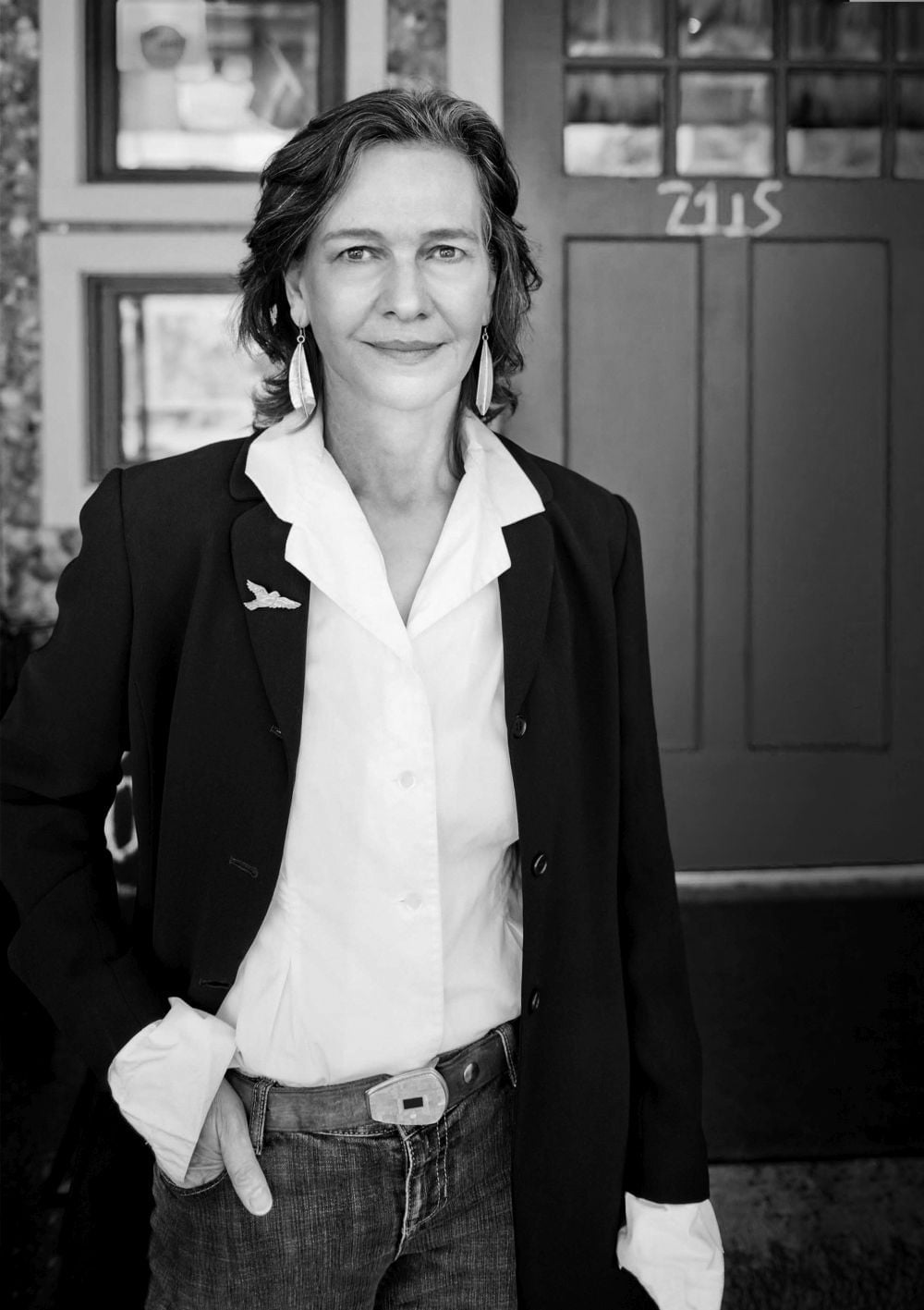
Louise Erdrich
- USA
- Zu Gast beim ilb: 2021
American writer Louise Erdrich was born in Little Falls, Minnesota, in 1954. Her maternal grandfather was Chairman of the Tribal Council of the Turtle Mountain Chippewa in North Dakota, and her father was German-American. She grew up in North Dakota on the edge of an Indian reserve. She studied anthropology at Johns Hopkins University from 1976 to 1979 and, after holding various jobs, became the editor of the magazine »Circle«.
In her literary texts, she processes real and fictional stories that were passed down to her through her family, as well as her own experiences in the contrasting space between freedom and subjugation, between closeness to nature and culture. The plot is often set in a fictional reserve and deals with the relationships between the indigenous people themselves, but also between indigenous people and people of European origin. In the process, she usually depicts a rich arsenal of characters and paints them in a complex and multi-layered light. She has written nearly thirty books, including fiction, nonfiction, poetry, and children’s books. In 1979, she wrote the short story »The Worldʼs Greatest Fisherman«, about a divorced Ojibwe woman who dies of hypothermia, prompting her relatives to travel to a fictional reserve in North Dakota for the funeral. This text won her the Nelson Algren Short Fiction Prize in 1982; it became the first chapter of her debut novel, »Love Medicine« (1984), which won her the National Book Critics Circle Award. That same year, Erdrich also published her first collection of poetry, »Jacklight«, which contains elements from Ojibwe myths. »The Antelope Wife« (1998), Erdrich’s first novel after her divorce from anthropologist Michael Dorris, with whom she had also formed an artistic partnership, marks the first break with the continuity of her previous books. It is about a Native American foundling who grows up in an American family after his family is cruelly attacked. The novel »The Master Butchers Singing Club« (1998), about two families who emigrate from Germany to the United States after World War I, was made into a film by Uli Edel in 2019. In her most recent novel, »The Night Watchman« (2020), Erdrich tells the story of her grandfather, who helped bring the protest against the dispossession of Native Americans from rural North Dakota to Washington.
Louise Erdrich has received numerous awards for her literary work, including the Anisfield-Wolf Book Award, the National Book Award for Fiction, and the Prize for American Fiction from the Library of Congress’ National Book Festival. »The Night Watchmen« was awarded the Pulitzer Prize in 2021. She lives in Minneapolis where she runs a bookstore specializing in Native American literature.
Liebeszauber
Rowohlt
Reinbek, 1986
[Ü: Helga Pfetsch]
Die Rübenkönigin
Rowohlt
Reinbek, 1988
[Ü: Helga Pfetsch]
Spuren
Rowohlt
Reinbek, 1990
[Ü: Barbara von Bechtolsheim u. Helga Pfetsch]
Die Krone des Kolumbus
[Mit Michael Dorris]
Rowohlt
Reinbek, 1991
[Ü: Edith Nerke u. Jürgen Bauer]
Der Bingo-Palast
Rowohlt
Reinbek, 1995
[Ü: Edith Nerke u. Jürgen Bauer]
Geschichten von brennender Liebe
Rowohlt
Reinbek, 1998
[Ü: Adelheid Zöfel]
Die Antilopenfrau
Rowohlt
Reinbek, 2001
[Ü: Juliane Gräbener-Müller]
Der Club der singenden Metzger
Suhrkamp
Frankfurt a. M., 2006
[Ü: Renate Orth-Guttmann]
Der Klang der Trommel
Eichborn
Frankfurt a. M., 2007
[Ü: Renate Orth-Guttmann]
Solange du lebst
Insel
Frankfurt a. M., 2009
[Ü: Chris Hirte]
Schattenfangen
Suhrkamp
Berlin, 2011
[Ü: Chris Hirte]
Das Haus des Windes
Aufbau
Berlin, 2014
[Ü: Gesine Schröder]
Ein Lied für die Geister
Aufbau
Berlin, 2016
[Ü: Gesine Schröder]
Der Gott am Ende der Straße
Aufbau
Berlin, 2019
[Ü: Gesine Schröder]
Der Nachtwächter
Aufbau
Berlin, 2021
[Ü: Gesine Schröder]
